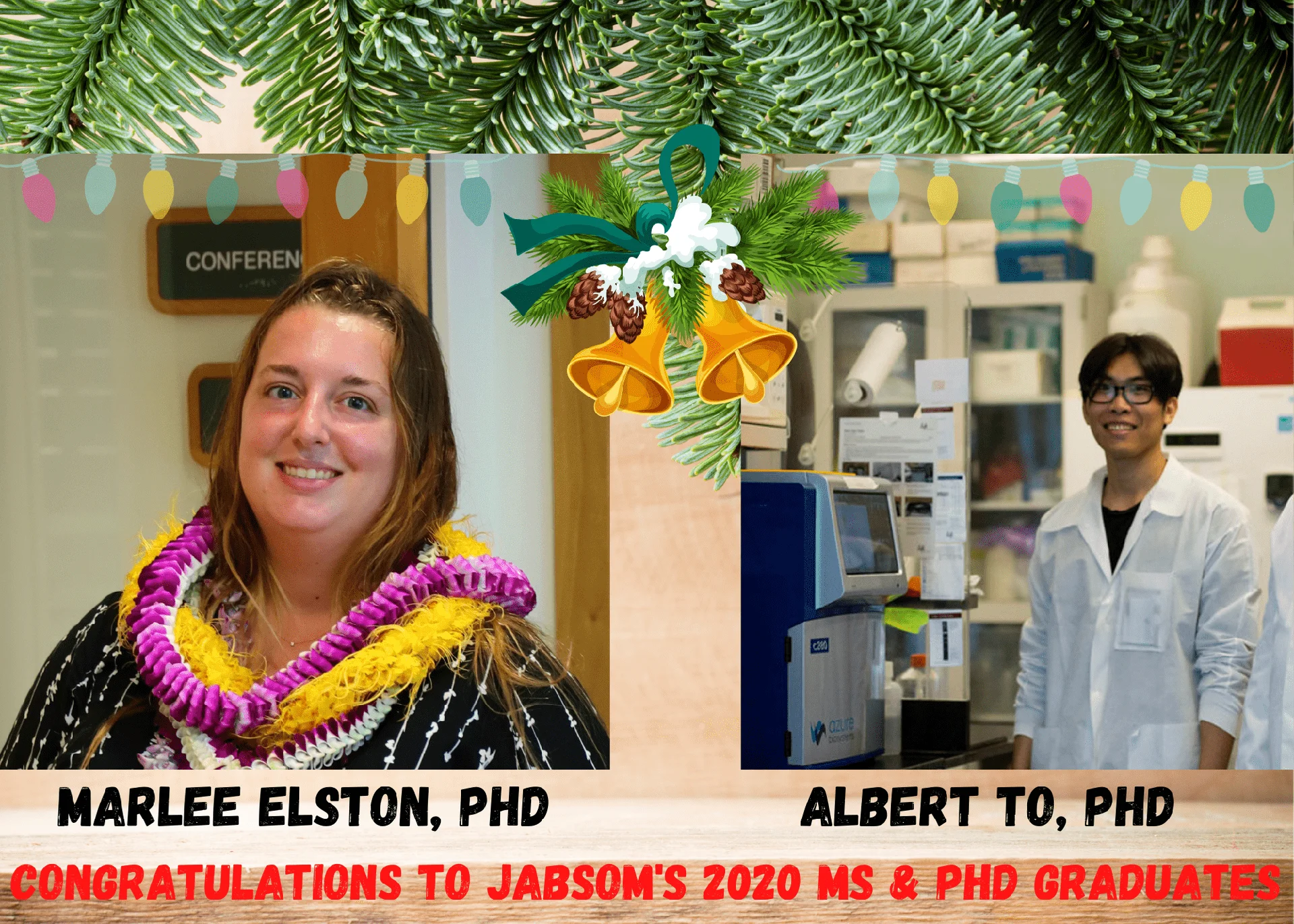
Marlee Elston, PhD, hails from Bellevue, Washington, and completed her undergraduate studies at the University of Hawaiʻi-Mānoa Spring 2011.
“I was deeply curious about the natural world since I was a young child,” Dr. Elston said. “The opportunity to be forever learning and discovering while being able to have a positive impact motivated me to go into the biological sciences.”
Her favorite spot in Hawai’i is the Na Pali Coast, which is perfect since she enjoys nature, hiking, nature photography, and sailing. But when she is working on her dissertation, it has her complete attention.
“My dissertation is about expanding our understanding of how to genetically modify the placenta,” Dr. Elston said. “This is important both for creating animal models to better understand pregnancy and its complications as well as working toward being able to fix placental complications in humans.”
With this line of research, Dr. Elston and her colleagues hope to ensure a future with healthier pregnancies for women and their children. This research opens the door for future treatments that can be directly delivered to the placenta in a non-invasive manner, allowing a new route for medical intervention in pregnancy complications.
“I started my research as a volunteer at the Institute for Biogenesis Research (IBR) as an undergraduate and wanted the opportunity to dive deeper into the field; attending graduate school through JABSOM allowed me to do that,” she said.
The major investigations of the IBR are reproductive and developmental biology, with an emphasis on assisted reproductive techniques (ART). IBR faculty use ART as a model to understand mammalian reproduction and development, and to develop new transgenic models for biomedical research.
“I enjoyed the collaborative atmosphere and getting to work with many creative minds at JABSOM. Within my research, I got to work on novel gene delivery strategies,” Dr. Elston said. “I enjoyed the challenge of creating new methods never used before. I also enjoyed working in a supportive and intellectually rich environment in the Urschitz Lab at the Institute for Biogenesis Research. I’d like to thank my colleagues and collaborators for making it an enriching place to do research.”
Albert To, PhD, and his mentor, Axel Lehrer, PhD, have been working on a shelf-stable, one-shot COVID-19 vaccine. With more funding the lab can begin testing on primates.
Albert To graduates this month with his PhD, and he has an intense final year of work toward creating a vaccine for the coronavirus to thank. Born on Oahu, Dr. To grew up in Palolo and Makiki, and graduated from Roosevelt High School.
“The same school that produced Bruno Mars,” Dr. To said. “I was encouraged by my high school teachers to study science in university and I just went with it. Watching Bill Nye the Science Guy and Mythbusters also helped.”
Dr. To said he wanted to stay in Hawaiʻi and learn how vaccines are made and work. He said he is grateful to have met his mentor, Axel Lehrer, PhD, who is researching a topic he is most interested in. According to Dr. To, the Department of Tropical Medicine at the John A. Burns School of Medicine (JABSOM) conducts excellent research in infectious diseases.
“When a new viral outbreak happens, we gotta respond to it,” Dr. To said. “Our lab’s most high-profile publications to-date are related to producing and testing our Ebola Virus, Zika Virus, and recently our SARS CoV 2 vaccines.”
Dr. To’s dissertation involves producing and testing viral protein vaccines against emerging viruses in small animal models. The vaccines are produced from insect cells and formulated with an immune enhancer called an adjuvant to generate strong immunity in the recipient. They want to determine if the formulation would protect animals from viral infection. This work is significant because Dr. To and his colleagues can quickly synthesize a vaccine using their own production system to determine if it can provide protection.
“There’s a sense of excitement and relief when you find out your experiment went according to plan, or when you get an ‘good’ unexpected outcome. It’s also very interesting learning about what other vaccine researchers are doing and the type of technology they have,” Dr. To said. “The long-term goal of this work is to have people using our vaccine as a preventative therapeutic.”
Dr. To’s mentor Dr. Lehrer is a successful researcher at JABSOM who has been developing a preclinical thermostable trivalent filovirus vaccine since 2017. A shelf-stable vaccine for COVID-19 would be well received in areas that do not have the cold storage required for other vaccines. Dr. To’s work complements Dr. Lehrer’s work, in that instead of using a live virus to create a vaccine, it uses an adjuvant that triggers the body to improve its own immunity.
“I enjoy working in a well-oiled lab with my lab mates. We really rely on each other for help. In my spare time, I also enjoy learning about how other vaccine researchers design their vaccines and wondering how they came up with their crazy ideas (innovations),” Dr. To said.